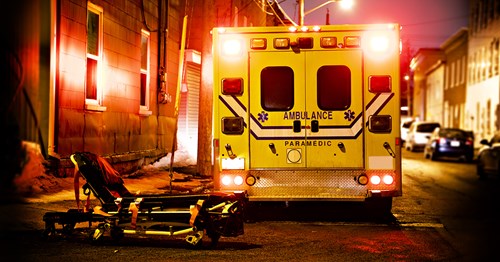A new study revealed that homeless people are 16 times more likely to die suddenly from heart attacks.

Homelessness is a key social determinant of health related to sudden deaths, according to a survey published by JAMA Internal Medicine. For the eight-year study, a team of researchers from the University of California, San Francisco (UCSF), sought to examine the association between housing status and sudden death.
They conducted the study in San Francisco County, an area with one of the largest concentrations of homelessness in the United States. The study included 868 autopsies that met the criteria of the World Health Organization to be presumed sudden cardiac death and 151 of the autopsies were homeless individuals.
“Homeless individuals die young, at a mean age of 50 years,” said corresponding and senior author Zian H. Tseng, M.D., MAS, a cardiologist and professor of medicine at UCSF, in a statement. “Our study sheds light into the contribution of sudden death to the homeless population. We found both cardiac and non-cardiac causes, such as overdoses and unrecognized infections, are much higher among homeless individuals dying suddenly. These findings offer several novel insights into the profound impact of homelessness on sudden death and its underlying causes.”
The researchers determined that homeless people are 16 times more likely to die suddenly due to cardiac issues compared to those who are not homeless. Rates of noncardiac issues, such as drug overdoses and gastrointestinal issues, were also very high among homeless people.
While the paramedic response times for sudden cardiac death were similar for housed and unhoused individuals, the study found that homeless individuals were dying at a younger age, 56 on average, compared to housed individuals, 61 on average. The homeless individuals were also more likely to be male and have a higher rate of alcohol and substance use, as well as psychiatric conditions.
Researchers noted that some of the deaths could have been prevented with the use of defibrillators. They concluded the study calling for further public health efforts to prevent more sudden deaths.
“While the high rate of substance use in the homeless population has long been recognized, our study demonstrates its association with early, sudden mortality and its true impact among the homeless,” said first author Leila Haghighat, M.D., MPhil, a cardiology fellow at UCSF, in the study announcement. “Public health interventions such as increasing the availability of automatic external defibrillators and redoubled efforts to treat substance use and targeted immunization efforts might be helpful to reduce sudden mortality.”

